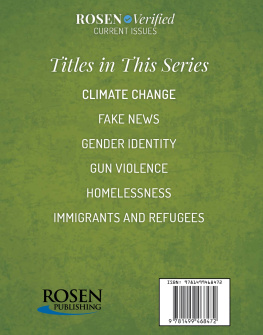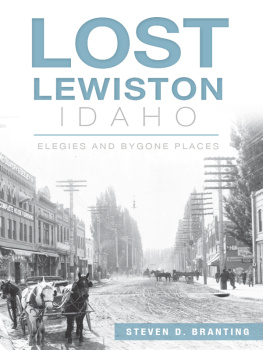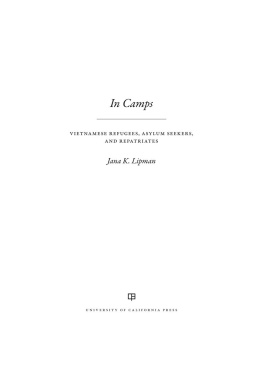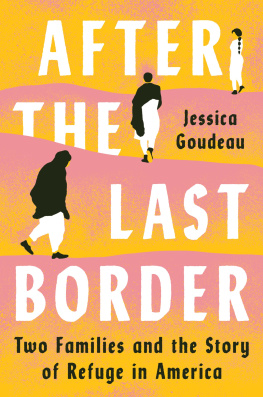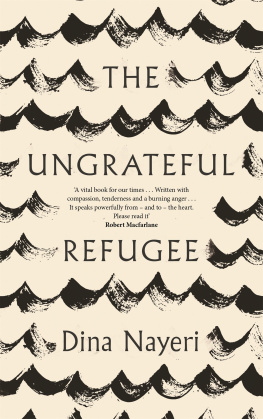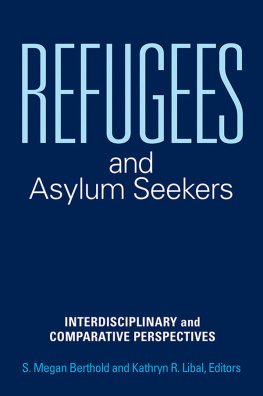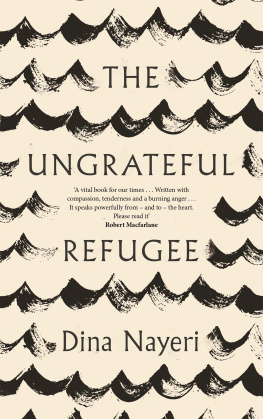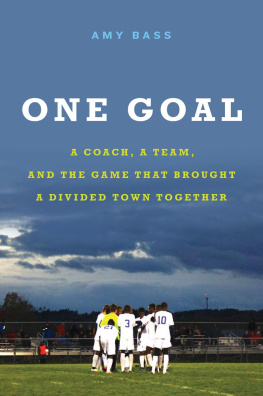The arrival of thousands of African refugees in a fading Maine city is a situation ripe for a writer as gifted as Cynthia Anderson. Home Now is immediately relevant and universally resonant, as it illuminates the explosive politics of immigration and explores complex issues around our relationships to places and each other. The richly told stories of Fatuma, Jamilo, Nasafari, Abdikadir, Carrys, and the other remarkable people in these pages will deepen and expand the ways that readers see the world.
M ITCHELL Z UCKOFF , New York Timesbestselling author of Fall and Rise: The Story of 9/11
In this journalists beautifully written, balanced, personal account, we learn how a former mill town losing business like a mouth losing teeth begins in 2001 to absorb 6,000 Somali, Congolese, and Sudanese refugees. In discouraging times, such an honest and heartening read.
A RLIE H OCHSCHILD , bestselling author of Strangers In Their Own Land: Anger and Mourning on the American Right
Home Now is a thrilling narration of the lives of the new Mainers settled in one of Americas whitest townsLewiston, Maine. Cynthia Anderson humanizes the stories of the recent immigrants, many of them Somalis, who helped reawaken a sleepy town. As a recent Somali immigrant myself, I saw in this book a true, intimate, and timely account of what I live every day. This book should be read by everyone to learn about the stories, geography, tradition, strength, and resilience of their new neighbors.
A BDI N OR I FTIN , author of Call Me American
A compassionate and insightful account of the human stories behind one of the most divisive issues in American politics.
F ARAH S TOCKMAN , New York Times reporter and Pulitzer Prize winner
Home Now is a breathtaking work of journalism and heart. Following several new Mainers who arrive from war-ravaged African countries, Anderson brings her own deep Maine roots to bear as she illuminates [the new immigrants] culture, assimilation, trauma, and homecoming. Her writing is graceful and clear-eyed and brimming with compassion both for the intrepid newcomers and the often ambivalent citizens who receive them. I found it instructive, poignant, and riveting. We need this book right now.
M ONICA W OOD , author of The One-in-a-Million Boy and When We Were the Kennedys
An essential book to remind us that racism and prejudice will never be more powerful than what binds us together in the great American mosaiccommunity, family, faith, and ultimately, hope. Cynthia Anderson provides an honest portrayal of being a Muslim immigrant in Trumps America.
A LI S. K HAN , dean of the School of Public Health, University of Nebraska
Home Now folds us into a nonpolemical but clear refutation of the villainization of immigrants. Families we come to know and respect have survived appalling hardship in Africa and settled in a Maine mill town thats been demoralized after factories closed or moved on. Nasafari Nahumure, Jamilo Maalim, and the many others on these pagesthey stand in for about 6,000 new immigrants in allhelp revitalize Lewistons spirit and commerce. Cynthia Andersons expert reporting welcomes us, in highly readable style, to the complex and constructive fate of the real America. Her careful rendering, and her insights, deepen our understanding of whats happening here and now.
M ARK K RAMER , founding director of the Nieman Program on Narrative Journalism at Harvard University
With great clarity and honesty, Cynthia Anderson blends intensely personal narratives with first-rate reporting to produce an indisputably necessary book for our times. Both an homage to those fearless immigrants who, through their industry and dedication, remake our country, and a wake-up call, Home Now gives us an America as it is now, today, not some bogus vision of what it never was. Theres hope in this book, and struggle and enduranceall beautifully and intimately captured. And you want to know what it is like at the Walmart at 9 PM in late August in Lewiston? Anderson can tell you; shes been there.
P ETER O RNER , author of Maggie Brown & Others and Am I Alone Here?
With the depth and detail of a skilled reporter and the narrative grace of a master storyteller, Cynthia Anderson brings to life one of Americas unlikeliest immigrant communities: the six thousand people from Sub-Saharan Africa who have made a home for themselves in one of the coldest states in the nation. In Home Now she carefully strips away the politics surrounding Muslim refugees in the United States to reveal human beings whose relationships with each other are anything but foreign. These individuals are recognizable as mothers, daughters, fathers, and sons and recognizably American in their dreams of a better future.
P AUL D OIRON , author of The Poachers Son
I AM INDEBTED to the Lewistonians who carry the main threads of this book and who opened their homes and hearts to me. My deepest gratitude goes to Fatuma Hussein, Jamilo Maalim, Nasafari Nahumure, Abdikadir Negeye, and Carrys Ngoy. I hope they find themselves and their loved ones accurately reflected in these pages.
Many others generously shared their stories and their perspectives on life in Lewiston: Shukri Abasheikh, Aba Abu, Farah Adan, Sadio Aden, Best Ali, Qamar Bashir, Mary Bedard, Jared J. Bristol, Mohamed Dekow, Frank, Deb Girouard, Skip Girouard, Mohamed Heban, Mohamed Hussein, Brian Ingalls, Isaac Kabuika, R. K., Safiya Khalid, Ikran-Sahra Khalif, Moe Landry, Jeannie Martin, Binto Matan, Mike McGraw, Aliya Mohamed, Zamzam Mohamud, Muna, Fowsia Musse, Phil Nadeau, Nabega Nankema, Kamakazi Nyagichumbi, Jihan Omar, Ashley P., Paul Poliquin, Mustafa Ramos, Renee, Norbert Rwambaza, Shoboh Saban, Abdiweli Said, Heidi Sawyer, Heather Sirocki, Julia Sleeper-Whiting, Mary Theriault, Jim Thompson, Rick Valentine, Bill Webster, Kim Wettlaufer. Thank you, all.
This book originated decades ago. I fell in love with Lewiston as a kid sitting with my family on Aunt Nells porch, riding the elevator at Pecks, walking to Great Falls lookout. Later my friend Lynn and I took dance lessons at Ellen Coopers studio and explored the length of Lisbon Street. We spent hours with Lynns mmre and her aunt, who lived nearby. Im grateful for those times.
Several news and magazine editors supported my earlier writings about Lewistons transformation. I owe thanks to Scott Armstrong at the Christian Science Monitor, Mel Allen at Yankee magazine, and the editorial teams at Huffington Post, The Hill, Forbes, and World Policy Institute. Paul Doiron published a feature on L-As new immigrants in Down East; Im grateful for that and for his insightful read of an early draft of this manuscript. Jane Friedman and Jessica DuLong also helped during the initial stages of the project and, before that, colleagues at Boston University led me to realize there was a book to write.
The work of many authors and writers provided valuable contextnotably Ben Rawlences City of Thorns: Nine Lives in the Worlds Largest Refugee Camp; Catherine Bestemans Making Refuge: Somali Bantu Refugees and Lewiston, Maine; Dave Eggerss What Is the What; Debi Goodwins Citizens of Nowhere; Nuruddin Farahs trilogy Maps, Gifts, and Secrets; Cindy Horsts Transnational Nomads: How Somalis Cope with Refugee Life in the Dadaab Camps of Kenya; Abdi Nor Iftins Call Me American; Jennifer Hyndmans Managing Displacement: Refugees and the Politics of Humanitarianism; Amy Basss One Goal: A Coach, a Team, and the Game That Brought a Divided Town Together; and a collection of narratives titled


